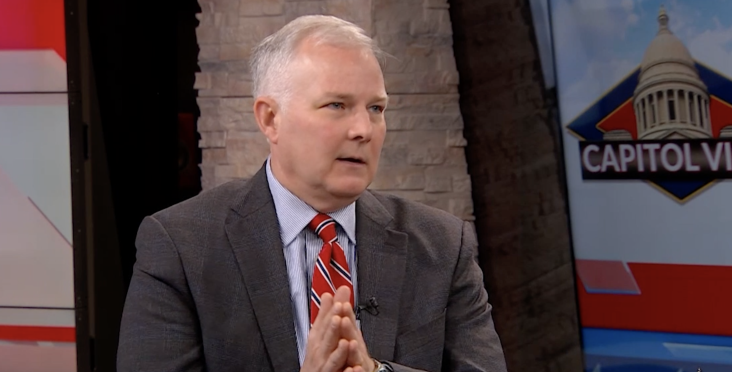AG Griffin’s FOIA working group meetings will not be open to the public
by June 15, 2023 11:30 am 1,213 views

Arkansas Attorney General Tim Griffin.
An Arkansas Freedom of Information Act (FOIA) review working group created by Arkansas Attorney General Tim Griffin includes a member who pushed legislation that would have “significantly weakened” public access to government documents.
Griffin on Wednesday (June 14) announced the new review group and its members, saying the digitization of records and other technology has increased public records available to the public through FOIA and is becoming a burden on public agencies.
“The last time FOIA was modernized, the iPhone hadn’t been invented yet. Since then, the use of digital records and new communications technology has increased exponentially, making it possible for public entities to create and retain more records than ever before, making responding to FOIA requests more complex and increasing the amount of FOIA requests being lodged with public entities,” Griffin said in a statement.
Griffin said the “bipartisan group” will provide his office recommendations on how to improve the law. Following are working group members selected by Griffin.
• Sen. Breanne Davis, R-Russellville
• Ryan Owsley, deputy attorney general, Opinions Division
• John Payne, deputy attorney general, Civil Litigation Division
• Rep. David Ray, R-Maumelle
• Sen. Clarke Tucker, D-Little Rock
• John Tull III, partner, Quattlebaum, Grooms & Tull
• Ashley Kemp, executive director of the Arkansas Press Association
In the 2023 General Assembly, Ray pushed legislation seeking to make several changes to the FOIA that supporters of the Act said would weaken it. His proposed changes included added exemptions for what public officials could discuss in executive session, would extend compliance to requests from three business days to 10 business days, and would increase possible fees to those making a records request. Ray’s bill died in committee.
Griffin decided to not use the Arkansas Freedom of Information Act Task Force created by the Arkansas Legislature in 2017 to review the state’s FOIA rules and any proposed changes.
Jeff LeMaster, communications director for the AG, said Griffin decided to select a group other than the FOIA Task Force because he wanted “diverse, but informed perspectives on FOIA,” and the seven people he selected will be an “informal conversational group that can provide recommendations to Tim.”
Also, meetings of the working group gathered to review any needed changes to public access to public documents will not be open to the public, LeMaster said.
“I have meetings like this incessantly, and they aren’t open to the public, but I did voluntarily publicize the group. It’s an informal, conversational working group. Any legislation that the I decide to include in my 2025 legislative package based on recommendations from the group will, of course, be public when the legislation is filed,” Griffin said in a statement provided to Talk Business & Politics.
Fort Smith attorney Joey McCutchen, who was active during the session pushing back against legislative efforts to weaken FOIA, told Talk Business & Politics that he doesn’t believe Griffin’s working group was created to protect existing provisions. He alleged that many on the group and Griffin have supported previous efforts to make it more difficult for the public to obtain public documents. McCutchen said Ray’s efforts during the session would have “significantly weakened” the state’s FOIA law.
“We must fight to keep FOIA strong. It’s fine to modernize and have thoughtful discussions BUT not weaken FOIA. Any changes to weaken FOIA is wrong and a war should be expected IF attempts are made to weaken FOIA. If this past 2023 legislative session is any indication, FOIA is going to take a beating,” McCutchen noted in a statement sent to Talk Business & Politics.
He also said the working group meetings should be open to the public.
“Any FOIA Review Working Group must be open to the public, with public participation and comments permitted and welcome. After all, we are debating our sunshine laws,” he noted.
